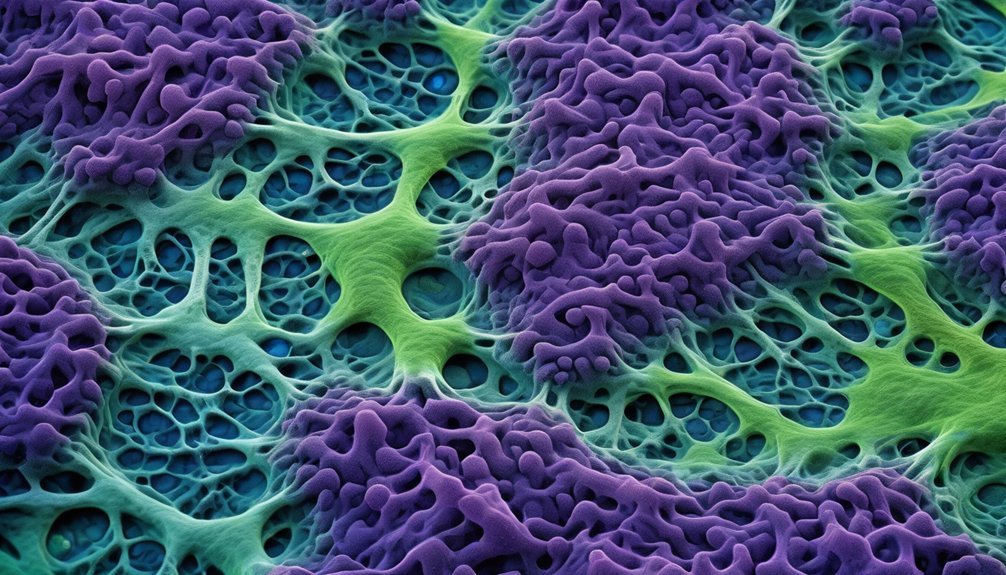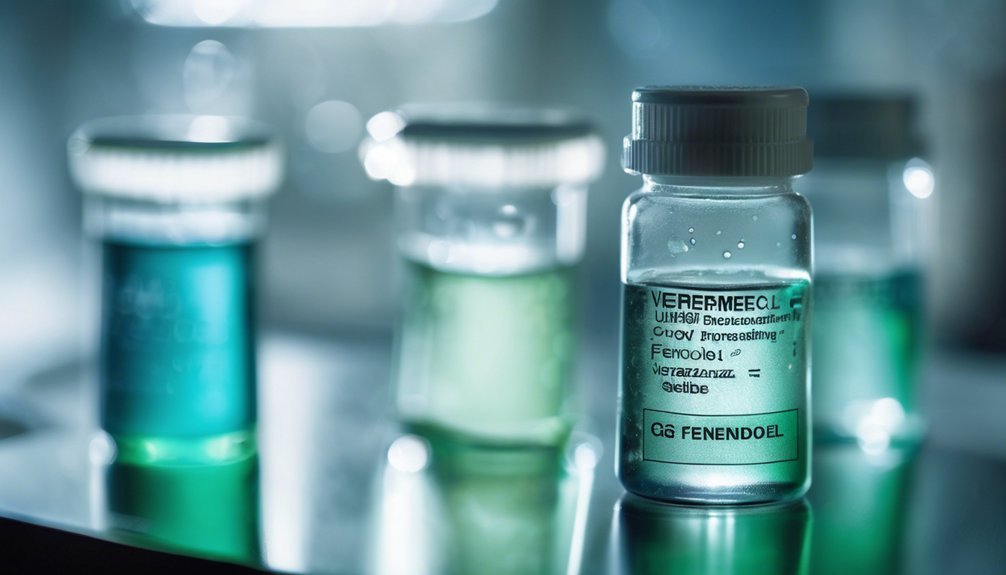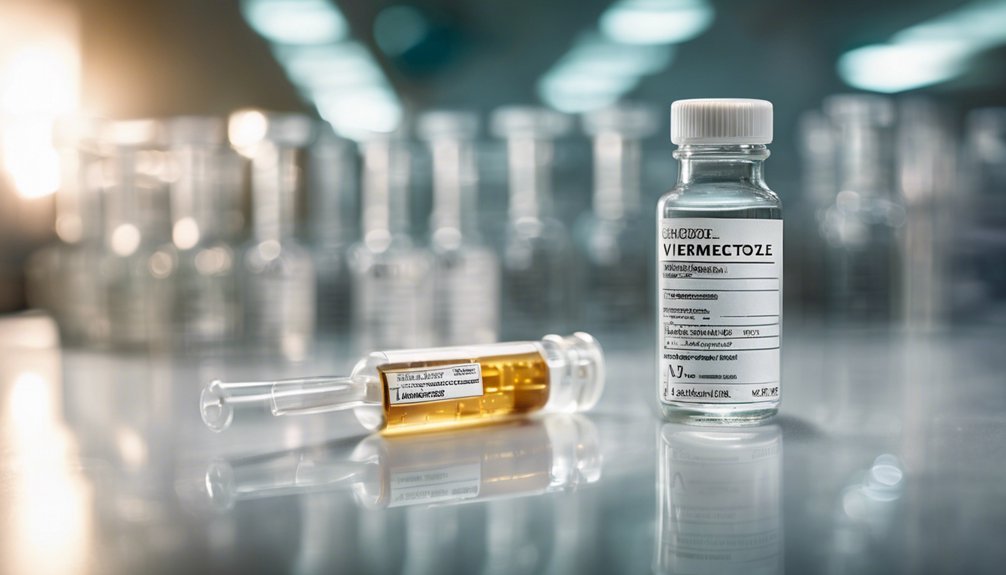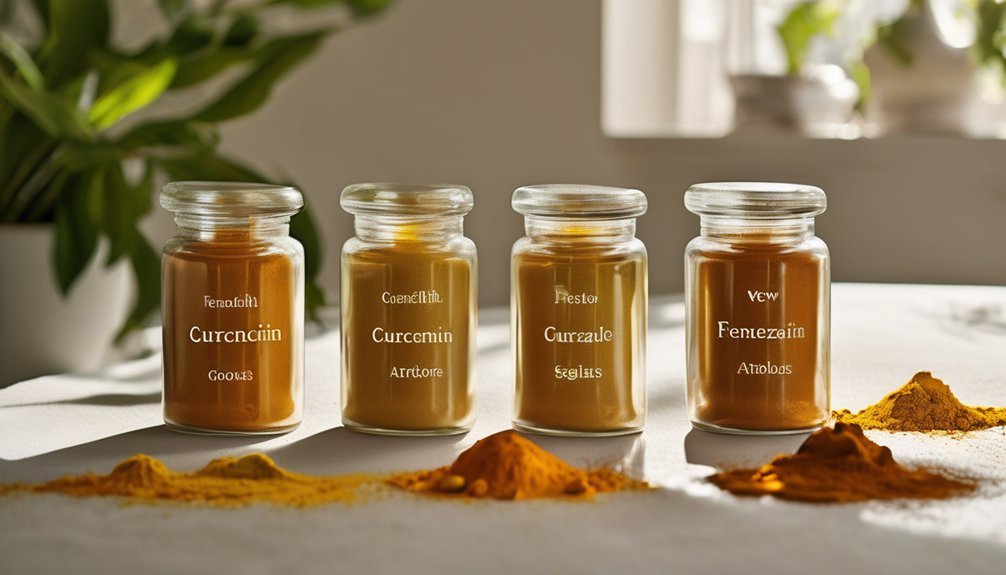Unveiling the potential of Vitamin K2 in combating cancer may seem like a simple concept at first glance, but the intricate mechanisms underlying its anti-cancer benefits are truly fascinating. By exploring how Vitamin K2 interacts with cancer cells at a cellular level, you can gain a deeper understanding of its role in preventing and potentially treating various types of cancers. Understanding these mechanisms could pave the way for innovative approaches to cancer management.
Key Takeaways
- Vitamin K2 inhibits cancer cell growth.
- It prevents skin cancer and leukemia.
- Vitamin K2 influences cellular regulation.
- Promotes cell death to reduce cancer risk.
- Supports anti-cancer therapies efficacy.
What Is Vitamin K2?
What exactly is vitamin K2 and why is it important for your health?
Vitamin K2 is a crucial nutrient that plays a significant role in various aspects of health. It's well-known for its role in blood clotting, but its benefits extend far beyond that.
Vitamin K2 is vital for bone health, as it helps in the regulation of calcium, ensuring it's directed to the bones where it's needed most, rather than accumulating in soft tissues. This function is essential in preventing conditions like osteoporosis.
Additionally, Vitamin K2 has been linked to cardiovascular health, as it helps in preventing the build-up of calcium in the arteries, reducing the risk of heart disease.
When it comes to supplement options, there are various forms of Vitamin K2 available, including MK-4 and MK-7. MK-7 is often preferred due to its longer half-life and higher bioavailability, making it a popular choice for supplementation.
Including Vitamin K2-rich foods in your diet, such as fermented foods, eggs, and certain cheeses, can also help ensure you're meeting your daily requirements for this essential nutrient.
Vitamin K2 and Cancer Prevention
Exploring the potential link between Vitamin K2 and cancer prevention reveals a growing body of research suggesting promising anti-cancer benefits associated with this essential nutrient. Studies have shown that Vitamin K2 plays a crucial role in preventing skin cancer by inhibiting the growth of cancer cells and promoting cell death in malignant skin cells.
Additionally, Vitamin K2 has been linked to its role in leukemia prevention. Research indicates that Vitamin K2 can help regulate cell growth, differentiation, and apoptosis in leukemia cells, potentially reducing the risk of leukemia development.
The anti-cancer properties of Vitamin K2 extend beyond skin cancer and leukemia, with studies highlighting its ability to inhibit cancer cell proliferation, induce cell cycle arrest, and promote cancer cell death in various types of cancer. Understanding the importance of Vitamin K2 in cancer prevention underscores the significance of incorporating this essential nutrient into your diet to potentially reduce the risk of cancer development and progression.
Mechanisms of Action
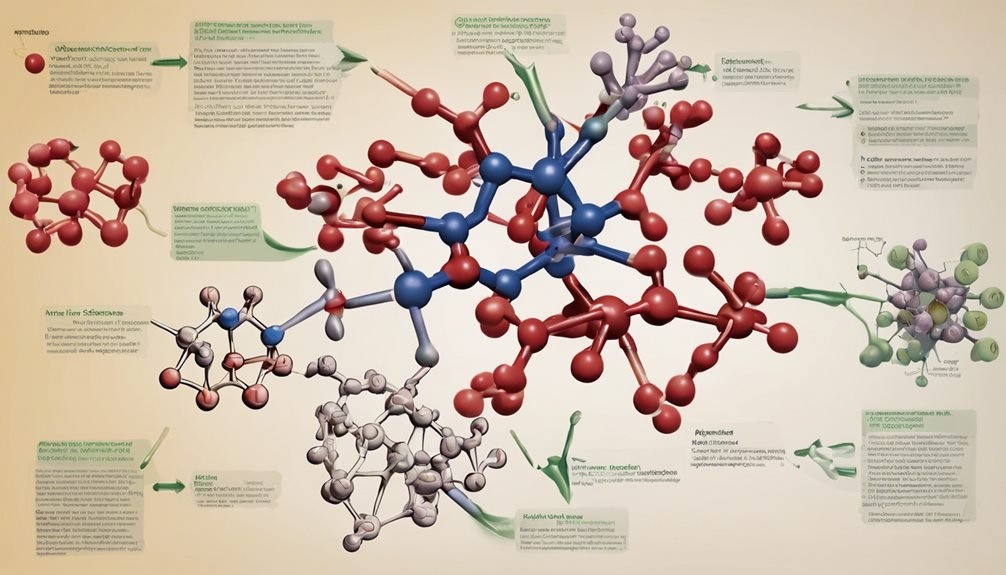
The mechanisms of action by which Vitamin K2 exerts its anti-cancer benefits are multifaceted and intricate. Vitamin K2 plays a crucial role in cellular regulation, influencing various processes that can inhibit cancer progression. One key mechanism is its ability to induce apoptosis, which is the programmed cell death essential for maintaining healthy tissues and eliminating potentially harmful cells.
Apoptosis induction by Vitamin K2 helps in removing damaged or mutated cells before they can grow uncontrollably into tumors.
Moreover, Vitamin K2 is involved in regulating cellular functions that affect cell growth, differentiation, and proliferation. By modulating these processes, Vitamin K2 can help prevent the uncontrolled division of cancer cells. Additionally, Vitamin K2 has been shown to inhibit the activity of certain enzymes and proteins that are involved in promoting cancer growth.
Vitamin K2 and Breast Cancer
Amidst the realm of cancer research, the correlation between Vitamin K2 and breast cancer has garnered attention for its potential implications in preventive and therapeutic strategies. Studies suggest that Vitamin K2 may play a role in breast cancer prevention by inhibiting tumor growth. Research has indicated that Vitamin K2 has the ability to regulate cell growth and differentiation, potentially impacting the development and progression of breast cancer.
In terms of breast cancer prevention, Vitamin K2's involvement in activating proteins that inhibit cell proliferation and promote cell death is of particular interest. By influencing these mechanisms, Vitamin K2 may help in reducing the risk of tumor growth in breast tissue.
Furthermore, some studies have shown that Vitamin K2 may have a synergistic effect when used in combination with other anti-cancer therapies, enhancing their efficacy in combating breast cancer. This suggests that Vitamin K2 could potentially be integrated into comprehensive treatment plans for individuals at risk of or diagnosed with breast cancer.
Vitamin K2 and Prostate Cancer
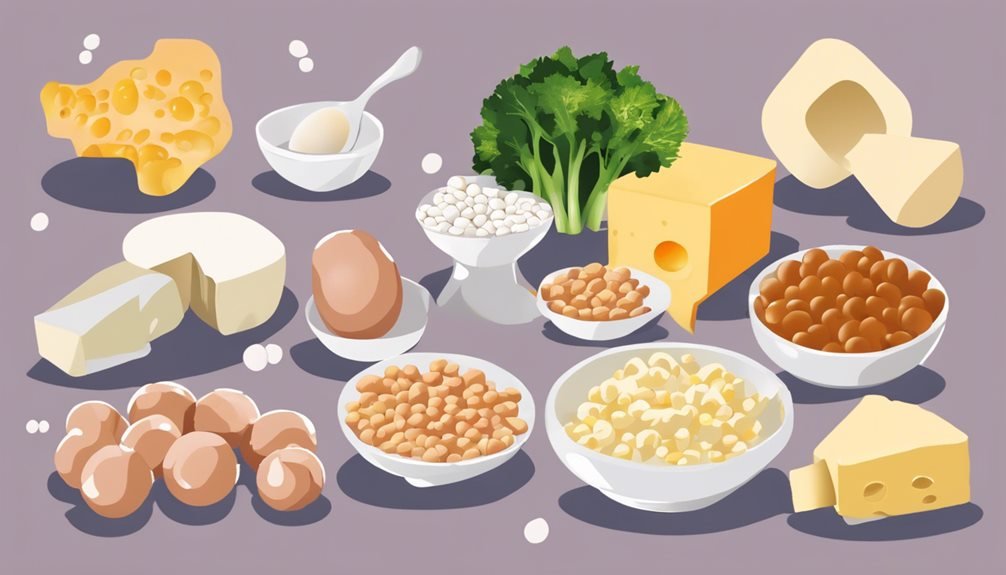
Research into the relationship between Vitamin K2 and prostate cancer has revealed intriguing findings that suggest a potential role for this vitamin in influencing the development and progression of the disease. Studies have shown that Vitamin K2 plays a crucial role in supporting prostate health by inhibiting tumor growth through various mechanisms. Here are some key points to consider:
- Vitamin K2 has demonstrated anti-inflammatory properties that can help reduce inflammation in the prostate gland, potentially lowering the risk of developing prostate cancer.
- Vitamin K2 has been found to regulate cell growth and differentiation in prostate cells, which may help in preventing the uncontrolled growth of cancerous cells.
- Vitamin K2 has shown promise in inducing apoptosis, a process of programmed cell death, in prostate cancer cells, thus impeding tumor growth and metastasis.
These findings highlight the importance of Vitamin K2 in maintaining prostate health and its potential role in combating prostate cancer.
Vitamin K2 and Lung Cancer
Exploring the potential link between Vitamin K2 and lung cancer reveals a growing body of research indicating a significant impact of this vitamin on lung health and cancer development. Vitamin K2 benefits extend to lung cancer prevention through its role in inhibiting cancer cell growth and promoting apoptosis, the natural process of cell death. Studies suggest that Vitamin K2 can help in reducing the risk of lung cancer by regulating cellular functions and promoting healthy cell turnover in lung tissues.
Research has shown that Vitamin K2 plays a crucial role in preventing the formation of new blood vessels that tumors need to grow, thereby impeding cancer progression.
Furthermore, Vitamin K2 has been found to influence gene expression related to lung cancer development, potentially offering protective effects against this prevalent form of cancer.
Vitamin K2 and Colorectal Cancer
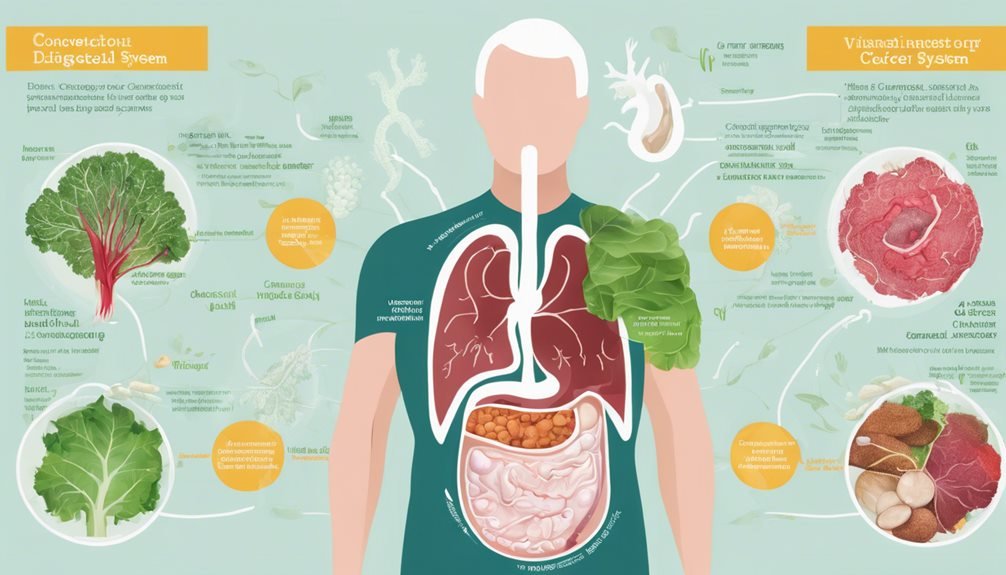
In studies examining the relationship between Vitamin K2 and colorectal cancer, significant evidence suggests a potential protective role of this vitamin in preventing the development and progression of this type of cancer. Vitamin K2 plays a crucial role in regulating cell growth, differentiation, and apoptosis, which are all essential in preventing cancerous growths in the colon and rectum. Additionally, Vitamin K2 has been linked to reducing inflammation in the gastrointestinal tract, further lowering the risk of colorectal cancer.
- Vitamin K2 and skin cancer: Studies show that Vitamin K2 may also have protective effects against skin cancer by inhibiting the growth of cancerous cells and promoting healthy skin cell turnover.
- Vitamin K2 and pancreatic cancer: Research indicates that Vitamin K2 may help in regulating cell proliferation in the pancreas, potentially reducing the risk of pancreatic cancer development.
The evidence supporting the connection between Vitamin K2 and colorectal cancer, along with its potential benefits in preventing skin and pancreatic cancer, highlights the importance of incorporating Vitamin K2-rich foods into your diet for overall cancer prevention.
Clinical Studies and Findings
Over the past decade, clinical studies have delved into the intricate relationship between Vitamin K2 and various types of cancer. Clinical trials focusing on the effectiveness of Vitamin K2 in cancer prevention and treatment have shown promising results. Meta-analyses of these trials have revealed positive outcomes, indicating that Vitamin K2 may have anti-cancer benefits, particularly in colorectal cancer.
In one meta-analysis, the pooled results of multiple clinical trials suggested that Vitamin K2 supplementation could significantly reduce the risk of developing colorectal cancer.
Another study found that Vitamin K2 intake was associated with a lower incidence of advanced-stage prostate cancer. Additionally, research has indicated that Vitamin K2 may help inhibit the growth of certain cancer cells and enhance the effectiveness of traditional cancer treatments.
These findings highlight the potential of Vitamin K2 as a valuable addition to cancer prevention and treatment strategies. Further research through rigorous clinical trials is warranted to fully understand the mechanisms underlying Vitamin K2's anti-cancer properties and its optimal use in cancer care.
Dosage and Supplementation
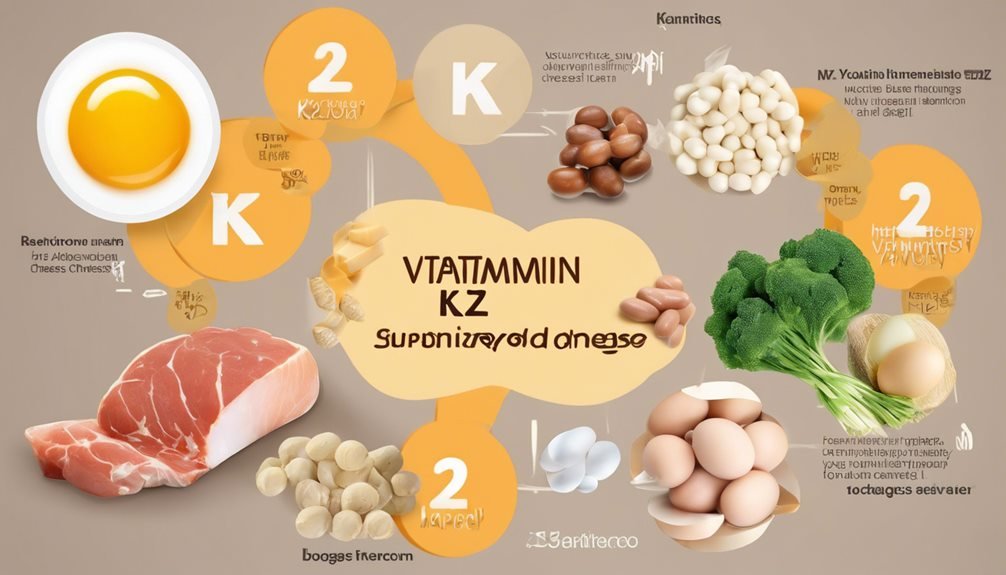
For optimal effectiveness in harnessing the potential anti-cancer benefits of Vitamin K2, determining the appropriate dosage and supplementation strategy is crucial. When considering Vitamin K2 supplementation, it's important to be mindful of the optimal dosages and supplement options available. Here are some key points to keep in mind:
- Optimal Dosages:
- The recommended daily intake of Vitamin K2 varies depending on individual needs and health conditions.
- Consult with a healthcare provider to determine the appropriate dosage that aligns with your specific health goals.
- Studies suggest that higher dosages of Vitamin K2 may be beneficial for individuals at a higher risk of developing certain types of cancer.
- Supplement Options:
- Vitamin K2 supplements are available in various forms such as capsules, tablets, and liquid drops.
- Look for high-quality supplements from reputable brands to ensure purity and potency.
- Consider combining Vitamin K2 supplements with other nutrients for enhanced benefits and synergistic effects.
Food Sources of Vitamin K2
A diverse array of whole foods serves as rich sources of Vitamin K2, essential for its role in potentially combating cancer. Including Vitamin K2-rich foods in your diet can provide numerous health benefits, including supporting bone health and reducing the risk of certain cancers. Some excellent sources of Vitamin K2 include fermented foods like natto, cheese, and sauerkraut. Animal-based sources such as liver, egg yolks, and chicken are also good options. To help you incorporate these foods into your diet, here is a table highlighting some Vitamin K2-rich foods:
| Food | Serving Size | Vitamin K2 Content |
|---|---|---|
| Natto | 1 oz | 1000 mcg |
| Gouda Cheese | 1 oz | 75 mcg |
| Pasture-Raised Egg Yolk | 1 large egg | 32 mcg |
| Chicken Liver | 1 oz | 15 mcg |
Potential Side Effects

Moving from a focus on the beneficial aspects of Vitamin K2, it's important to also consider potential side effects associated with its consumption. While Vitamin K2 is generally safe when taken within recommended doses, there are potential risks and adverse reactions that individuals should be aware of:
- Blood Clotting Issues: High doses of Vitamin K2 may interfere with blood-thinning medications, potentially leading to clotting problems.
- Gastrointestinal Disturbances: Some individuals may experience digestive issues such as nausea, diarrhea, or stomach cramps when consuming Vitamin K2 supplements.
- Allergic Reactions: In rare cases, allergic reactions to Vitamin K2 supplements may occur, leading to symptoms like rash, itching, or difficulty breathing.
It is crucial to consult with a healthcare provider before starting any new supplement regimen, including Vitamin K2, especially if you have pre-existing medical conditions or are taking medications that could interact with it. Monitoring for any unusual symptoms can help in promptly addressing any potential side effects.
Incorporating Vitamin K2 Into Your Routine
When incorporating Vitamin K2 into your routine, it's essential to understand how this nutrient can benefit your overall health and well-being. Vitamin K2, known for its potential anti-cancer properties, can be effectively incorporated into your regimen through dietary sources or supplements.
Dietary sources of Vitamin K2 include fermented foods like natto, cheese, egg yolks, and meats from grass-fed animals. However, if these sources aren't readily available or consumed regularly, supplements can be a convenient alternative to ensure adequate intake.
Supplement effectiveness can vary depending on the form of Vitamin K2 used and its bioavailability. When choosing a supplement, opt for forms such as MK-4 or MK-7, which are well-absorbed by the body. It's recommended to consult with a healthcare provider or a nutritionist to determine the appropriate dosage of Vitamin K2 based on your individual needs and health status.
Frequently Asked Questions
Can Vitamin K2 Be Used as a Standalone Treatment for Cancer?
When considering cancer treatment, it's crucial to understand that no single approach is a standalone solution. Efficacy assessment of vitamin K2 in cancer treatment requires robust clinical trials. Consulting healthcare professionals and oncologists is essential to develop a comprehensive treatment plan.
While vitamin K2 may show promise in certain scenarios, it's important to approach cancer treatment holistically, incorporating evidence-based strategies for the best outcomes.
Are There Any Interactions Between Vitamin K2 and Cancer Medications?
When taking cancer medications, it's essential to be aware of potential drug interactions with vitamin K2. These interactions can impact the effectiveness of your treatment. Always consult with your healthcare provider to ensure your dosage guidelines are appropriate and safe.
Understanding how vitamin K2 interacts with your cancer medications is crucial for managing your overall health and treatment plan effectively. Stay informed and proactive in discussing any concerns or questions with your medical team.
Is Vitamin K2 Supplementation Safe for Pregnant Women With Cancer?
When considering pregnancy safety and cancer treatment effectiveness, it's crucial to consult healthcare providers before starting any supplement regimen, including vitamin K2.
While vitamin K2 is generally recognized as safe, its impact during pregnancy and cancer treatment warrants careful evaluation due to potential interactions.
Always prioritize open communication with your healthcare team to ensure the safest and most effective approach to supplementation while pregnant and undergoing cancer treatment.
Can Vitamin K2 Help Prevent Cancer Recurrence After Treatment?
If you're seeking ways to boost your cancer prevention efforts post-treatment, consider the potential benefits of vitamin K2. Evidence suggests that vitamin K2 may play a role in reducing cancer recurrence rates. By exploring treatment options that incorporate vitamin K2, you could potentially enhance your chances of preventing cancer from coming back.
While further research is needed, integrating this nutrient into your post-treatment regimen may provide additional support in your battle against cancer.
Are There Any Specific Dietary Restrictions When Taking Vitamin K2 for Cancer Prevention?
When considering dietary recommendations while taking vitamin K2 for cancer prevention, focus on a balanced diet rich in fruits, vegetables, whole grains, and lean proteins.
Avoid excessive intake of vitamin K-rich foods like kale and spinach, as they can interfere with blood thinners.
Consult a healthcare provider for the optimal dosage of vitamin K2 tailored to your individual needs and health condition.
Balancing nutrients is key for overall well-being during cancer prevention efforts.
Conclusion
In conclusion, Vitamin K2 shows promising anti-cancer benefits through its ability to regulate cell growth and promote cell death. Like a guardian protecting against the threat of cancer, Vitamin K2 offers a potential ally in the fight against various types of cancers. Incorporating Vitamin K2 into your routine may help reduce the risk of cancer development and enhance overall health. Stay proactive in your health journey and consider adding Vitamin K2 to your daily regimen.


